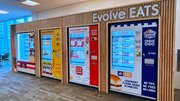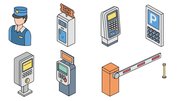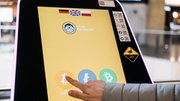Article
SoloHealth partners to create free healthcare kiosks for Georgia's underserved
Rural communities getting health help through kiosks from the state, SoloHealth and healthcare museum.

October 24, 2010
Healthcare kiosk firm SoloHealth has teamed with the Georgia Department of Health and the National Health Museum to offer a free digital healthcare system for residents of the largely rural and low-income Early County in Georgia.
The goal of the program is to offer free healthcare information at the touch of computer screen to residents who have little or no access to healthcare, and often don’t have the means to pay for it, according to the partners. The program targets adults who are 20 and older.
Residents use the Personal Health Advisor (PHA) kiosk to view an interactive video that includes a presentation by a doctor and a series of questions that can be answered using a touch screen. After completing the questions the user can receive the results in three ways — listen to the doctor on the kiosk, view the results on screen, or print out the information.
The doctor's presentation and Q&A session typically lasts five to 10 minutes, says Bart Foster, SoloHealth CEO.
"This is purely informational, it's not diagnostic," said Foster. "This is a way to improve access to healthcare for people who usually don't have that access."
The PHA is being tested at the Primary Care of Southwest Georgia community clinic in Blakely, Ga. The test is still in a pilot phase but feedback has been positive, says Foster. Plans call for the kiosk program to be expanded statewide.
The National Health Museum in Atlanta first teamed with SoloHealth about 18 months ago, after being impressed by its EyeSite Vision screening kiosk, says David Roland, the museum’s president and CEO. SoloHealth is based in Duluth, Ga., near Atlanta.
"We developed a friendship and collaborative relationship," Roland said.
Roland believes kiosks and other information devices will be critical as the 30 million previously uninsured regularly visit doctors and other providers.
"The future of healthcare is prevention. The healthcare reform program is based on getting people to do better job of taking care of themselves. That will drive the healthcare kiosk market," Roland said.
Both the Museum and SoloHealth have plans beyond the PHA program.
The Museum's long-term plan is to operate an interactive, experiential healthcare theme park in Atlanta's Centennial Olympic Park, says Roland. Visitors will interact with kiosks and other exhibits, learn more about medicine, and apply what they've learned to their own health.
In June SoloHealth received a $1.2 million grant from the National Institutes of Health to expand its EyeSite kiosk into a full self-screening station. EyeSite kiosks are located in Kroger and Schnucks grocery stores in Atlanta, Houston, St. Louis and other cities.
SoloHealth plans to launch in 2011 a kiosk station that will check the user's vision acuity, blood pressure and body mass index (BMI), and look for signs of diabetes, obesity and hypertension. The consumer is then given recommendations for follow-up care.
The station will be sited in high traffic locations including health centers, grocery stores and pharmacies, says Foster, who adds that two major retailers have committed to providing space for the device.
SoloHealth creates and develops its system specifications and software, and outsources the manufacturing to a firm that Foster declined to mention. Foster says that SoloHealth earns its revenue through advertising by retailers, by facilitating connections with patients and medical providers, and by capturing patient information.
 ChatGPT
ChatGPT Grok
Grok Perplexity
Perplexity Claude
Claude









